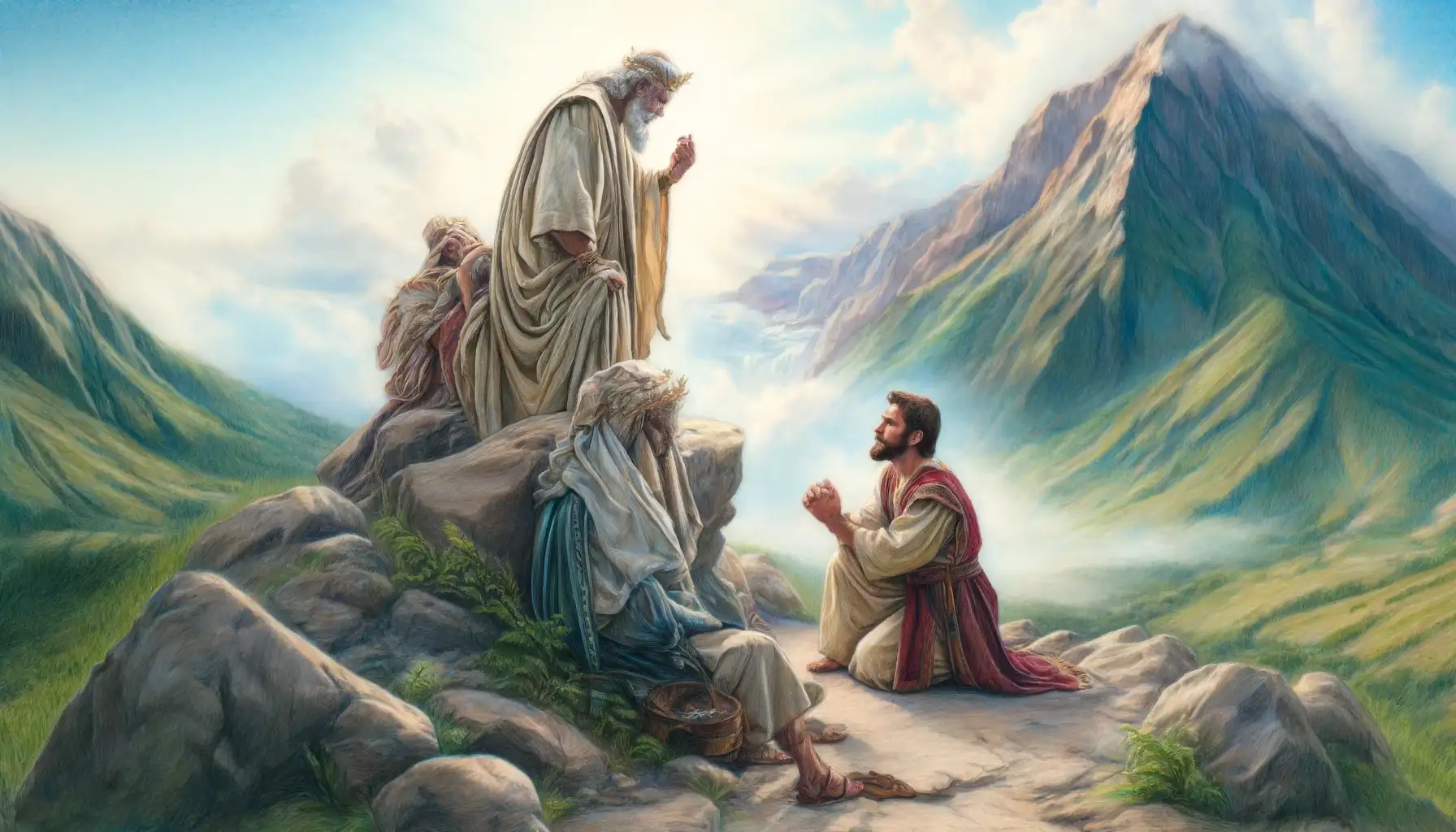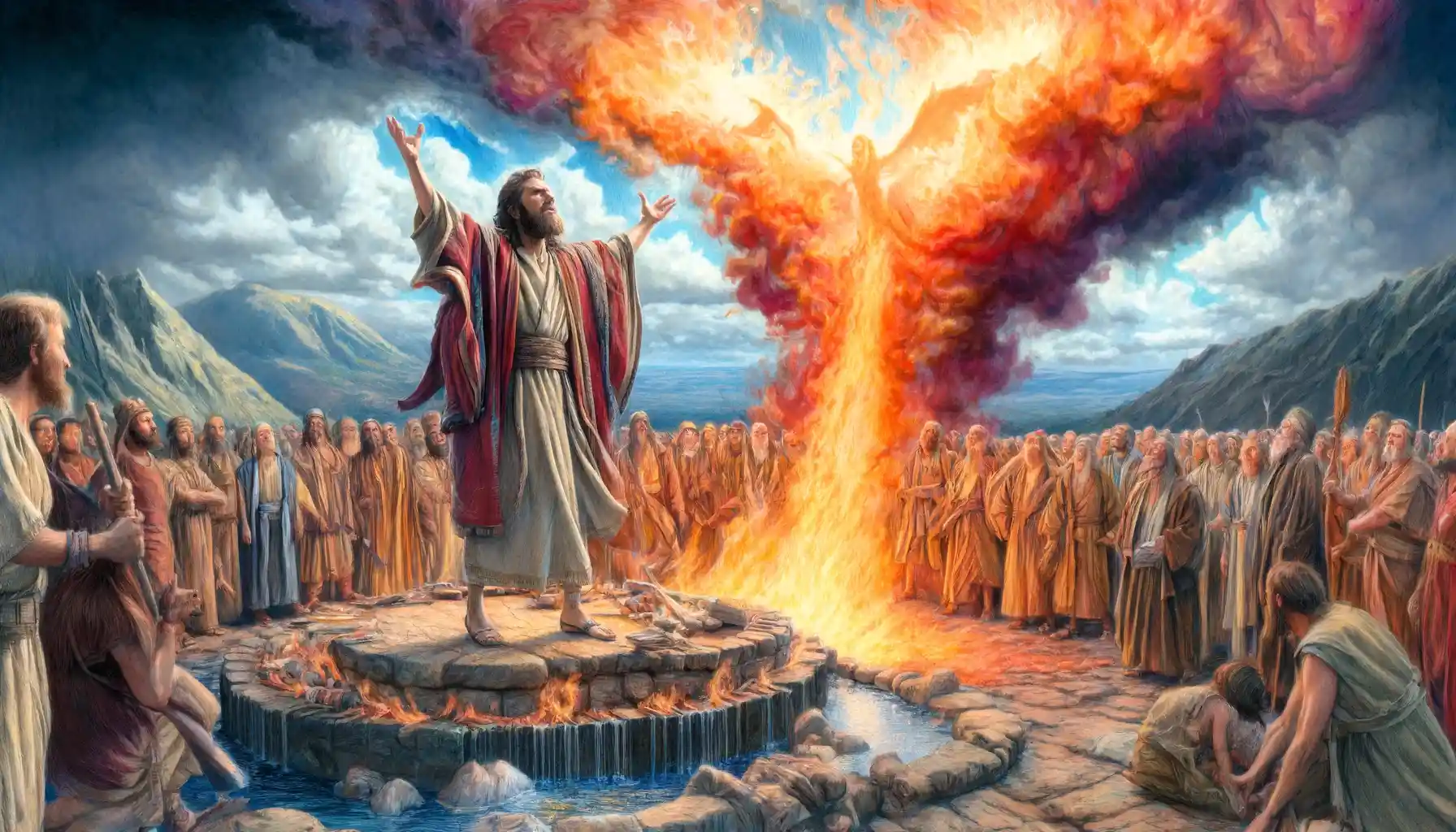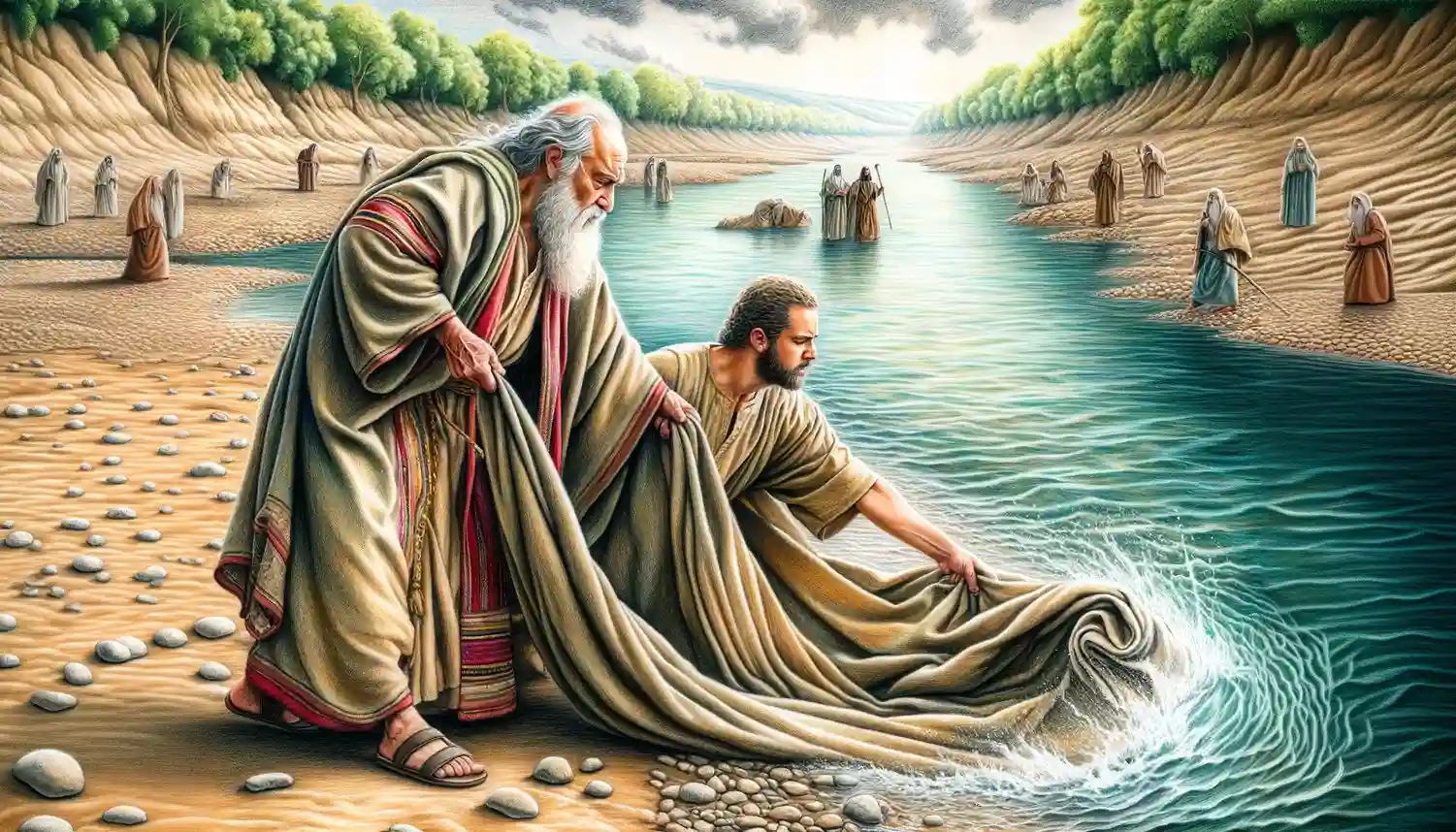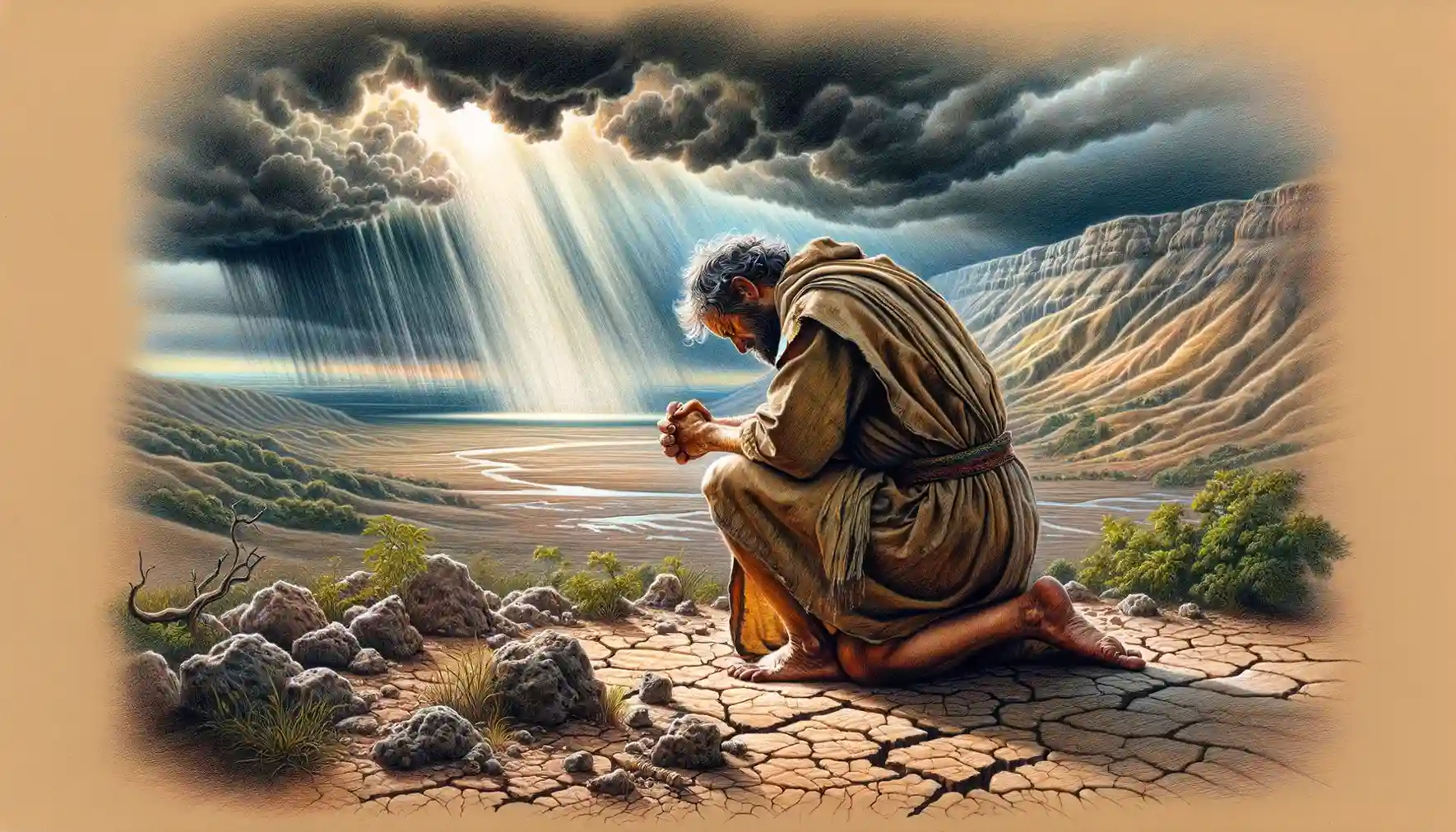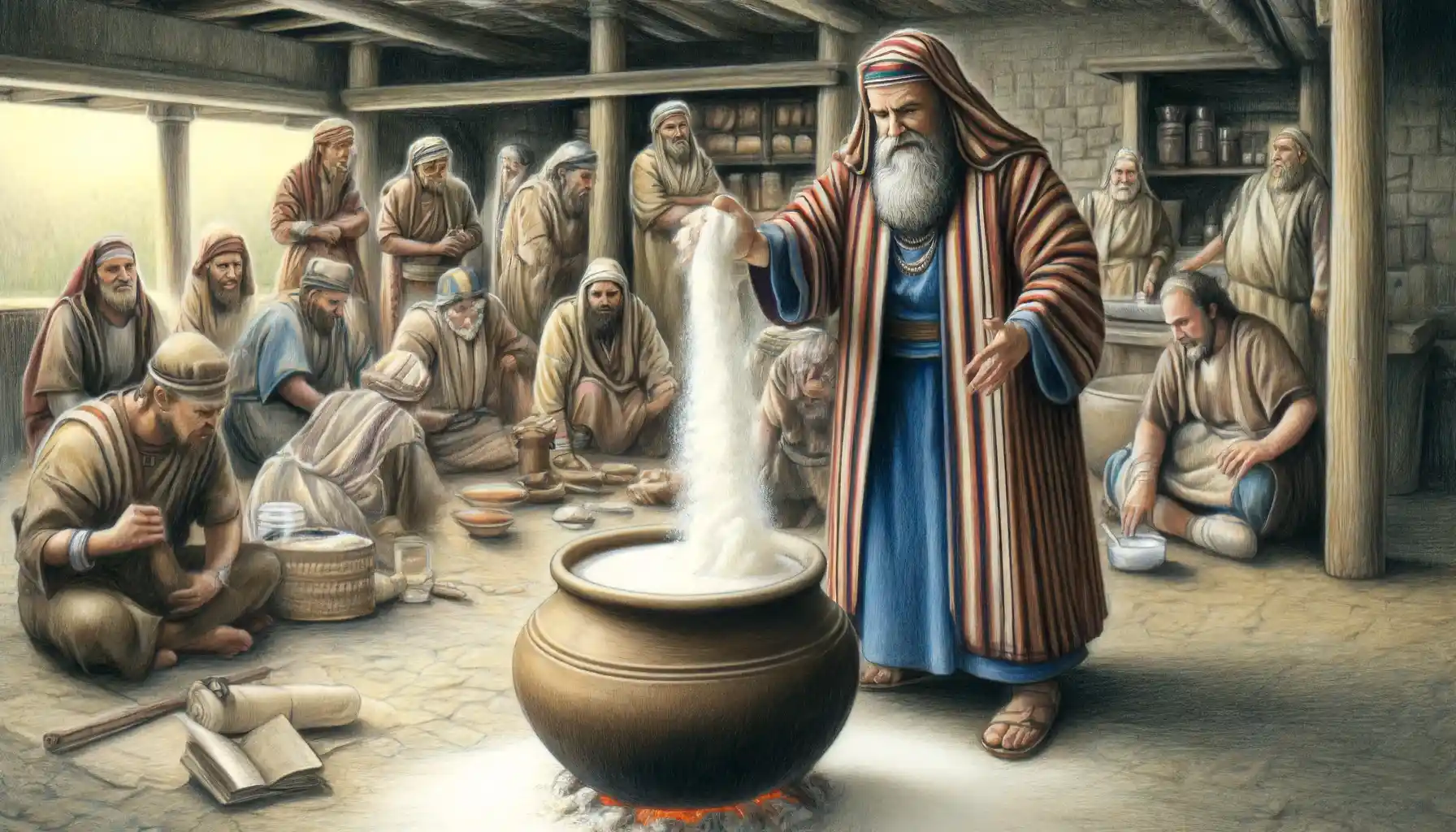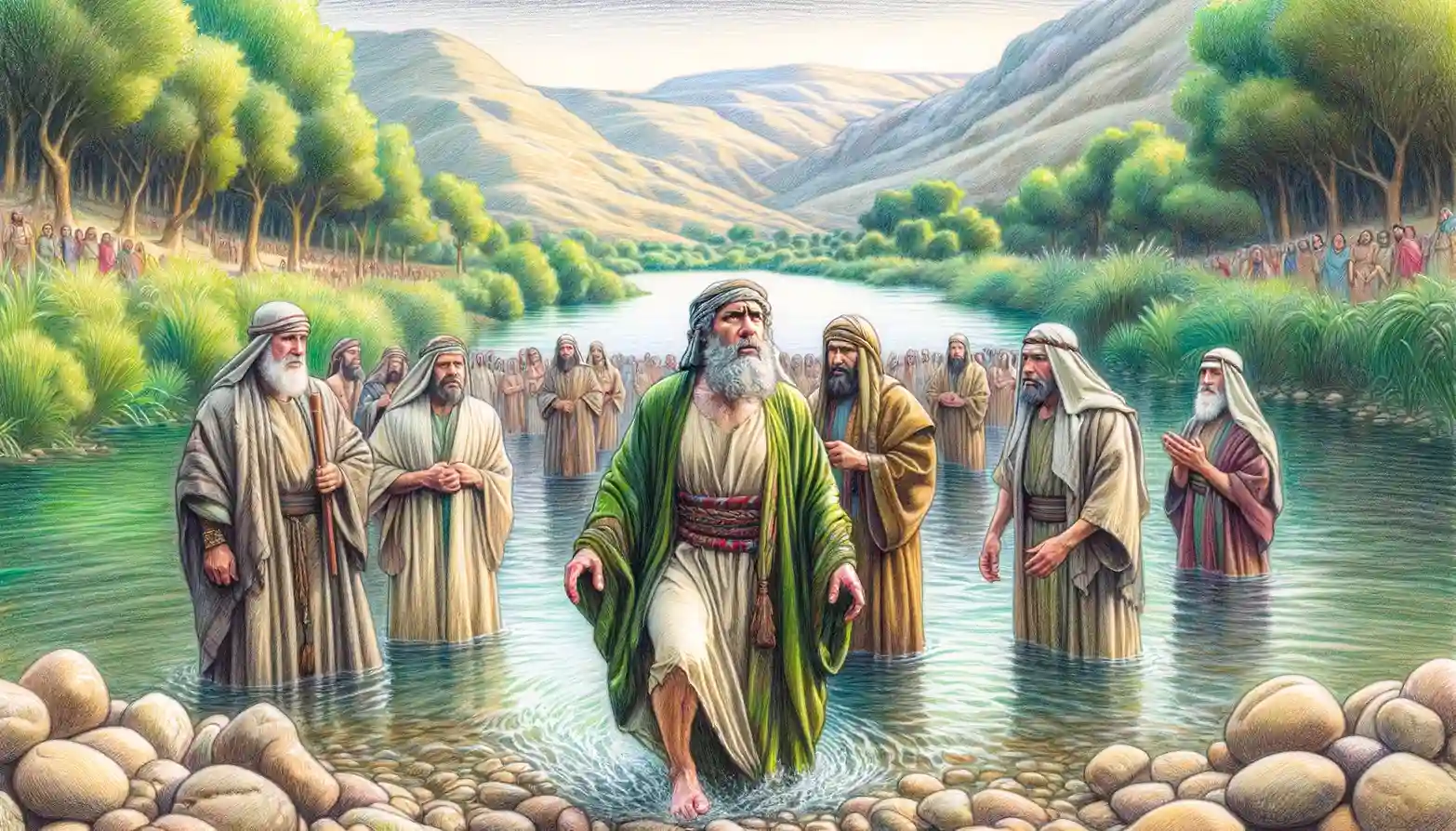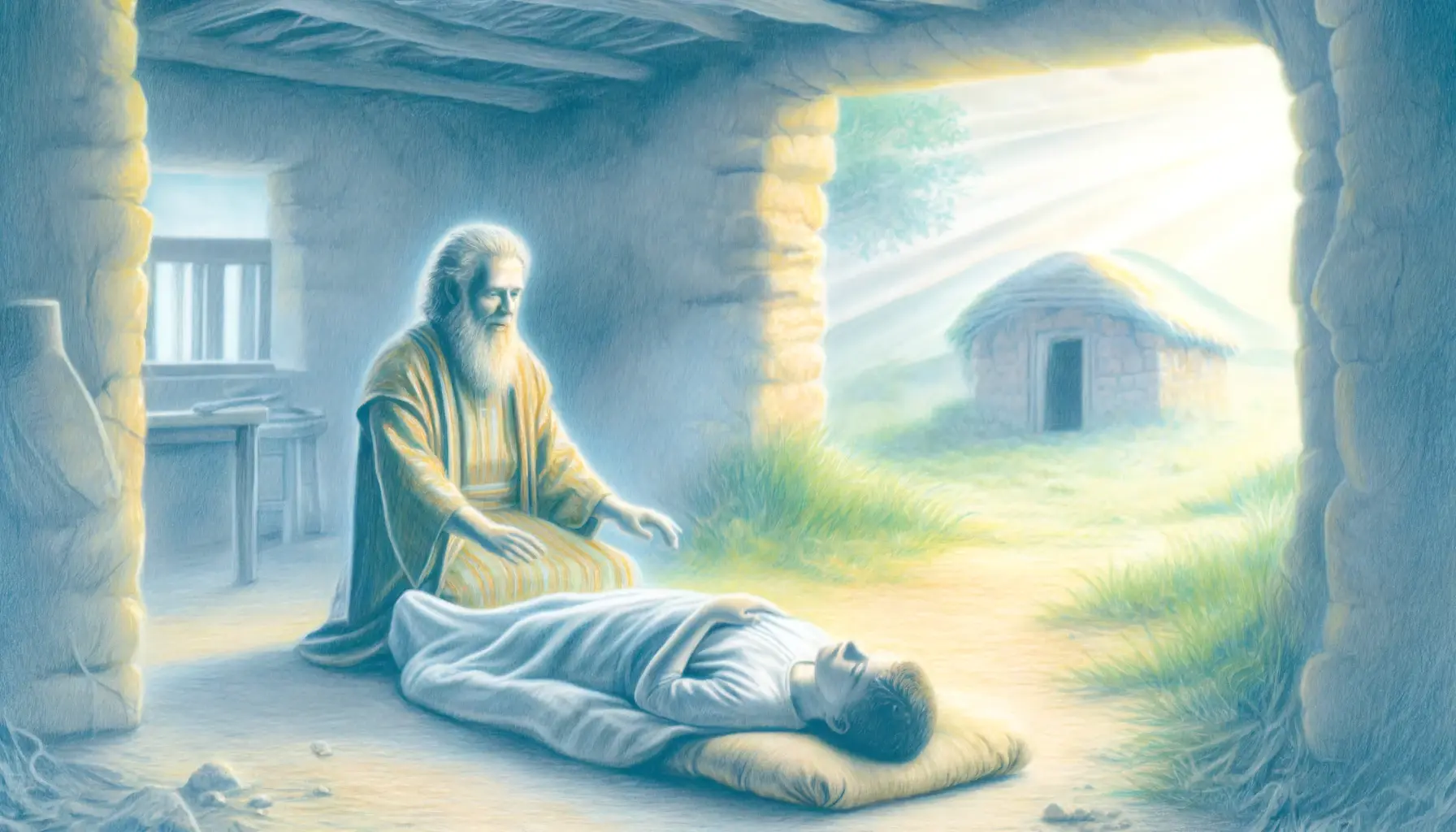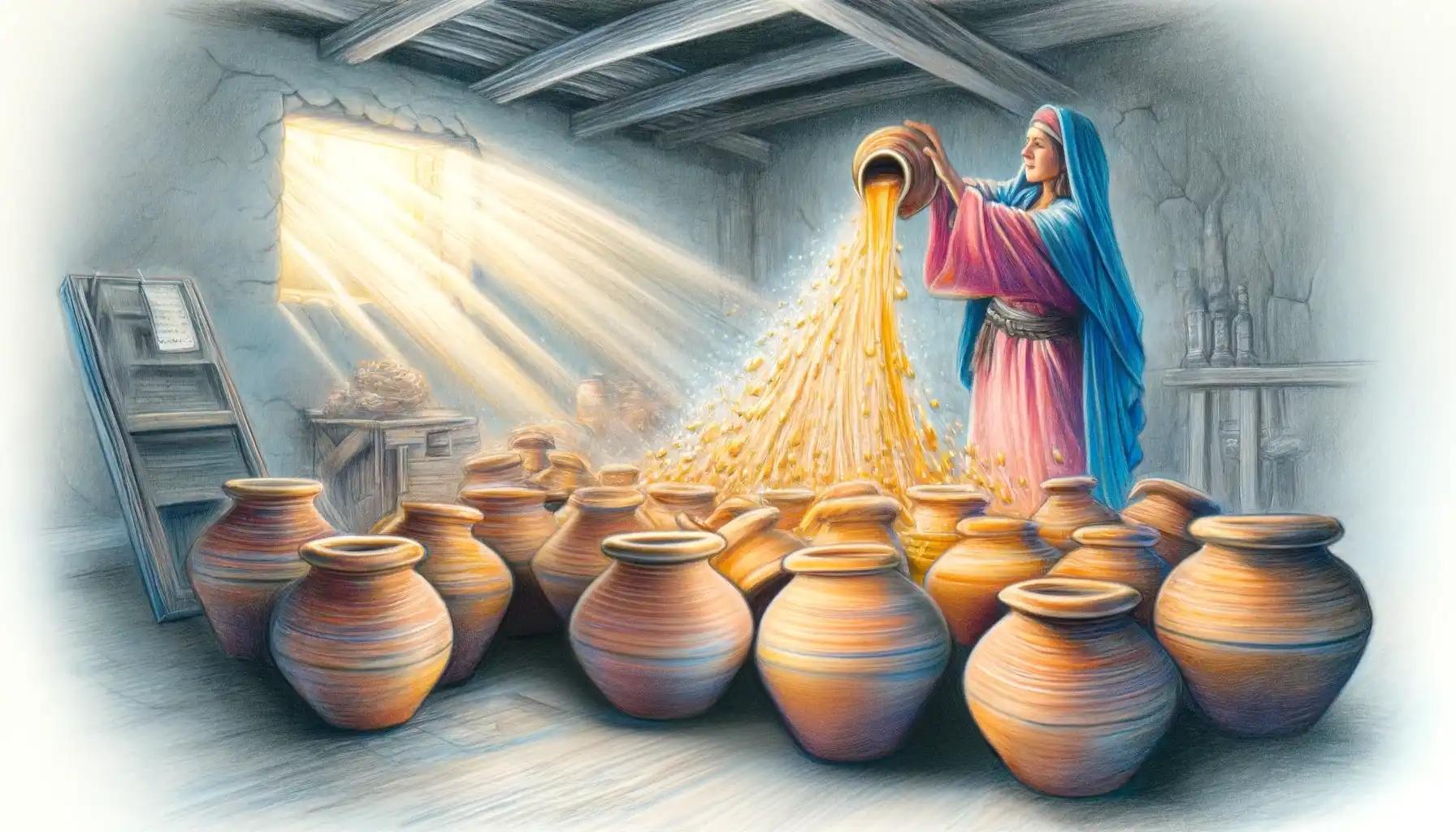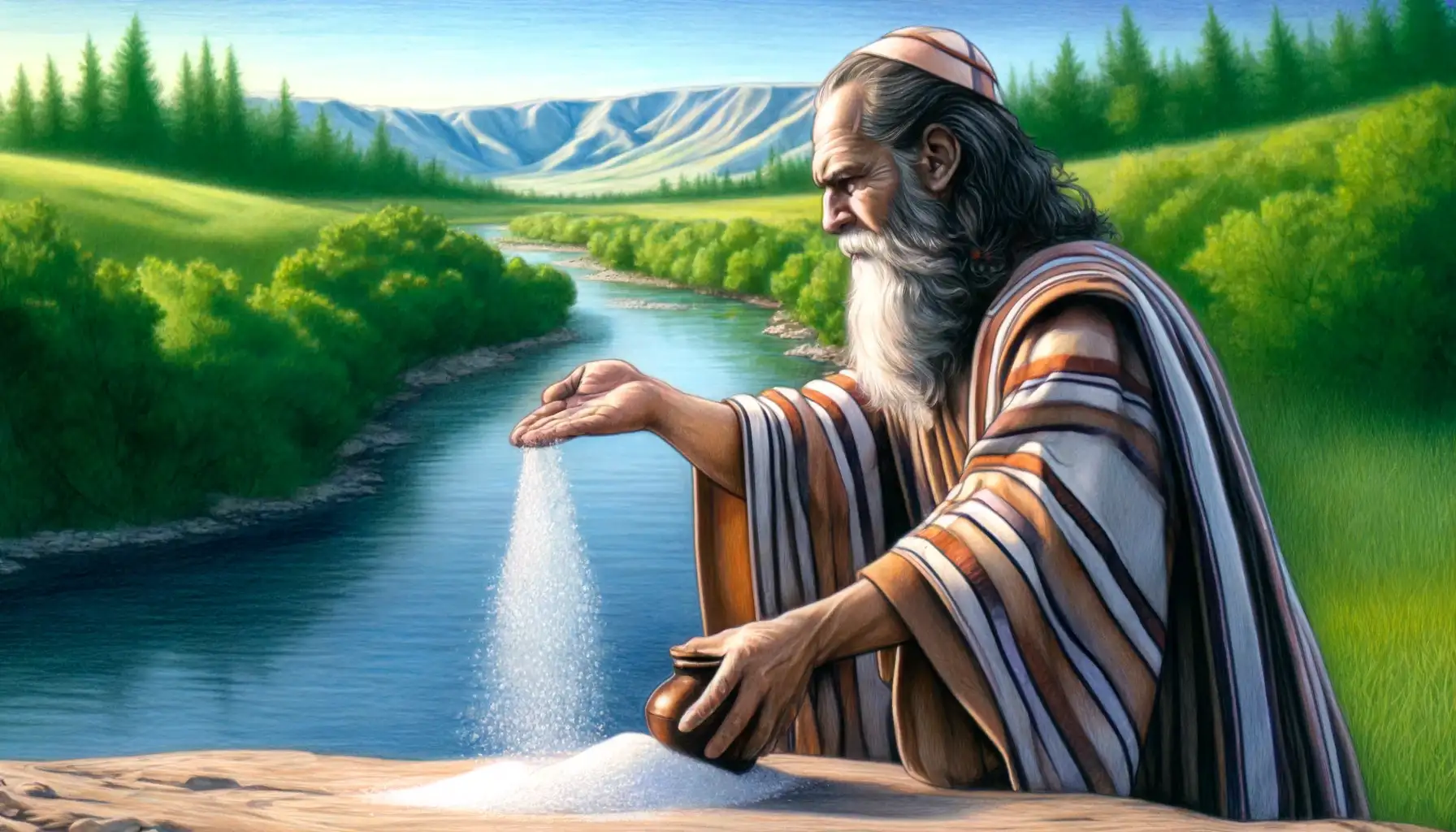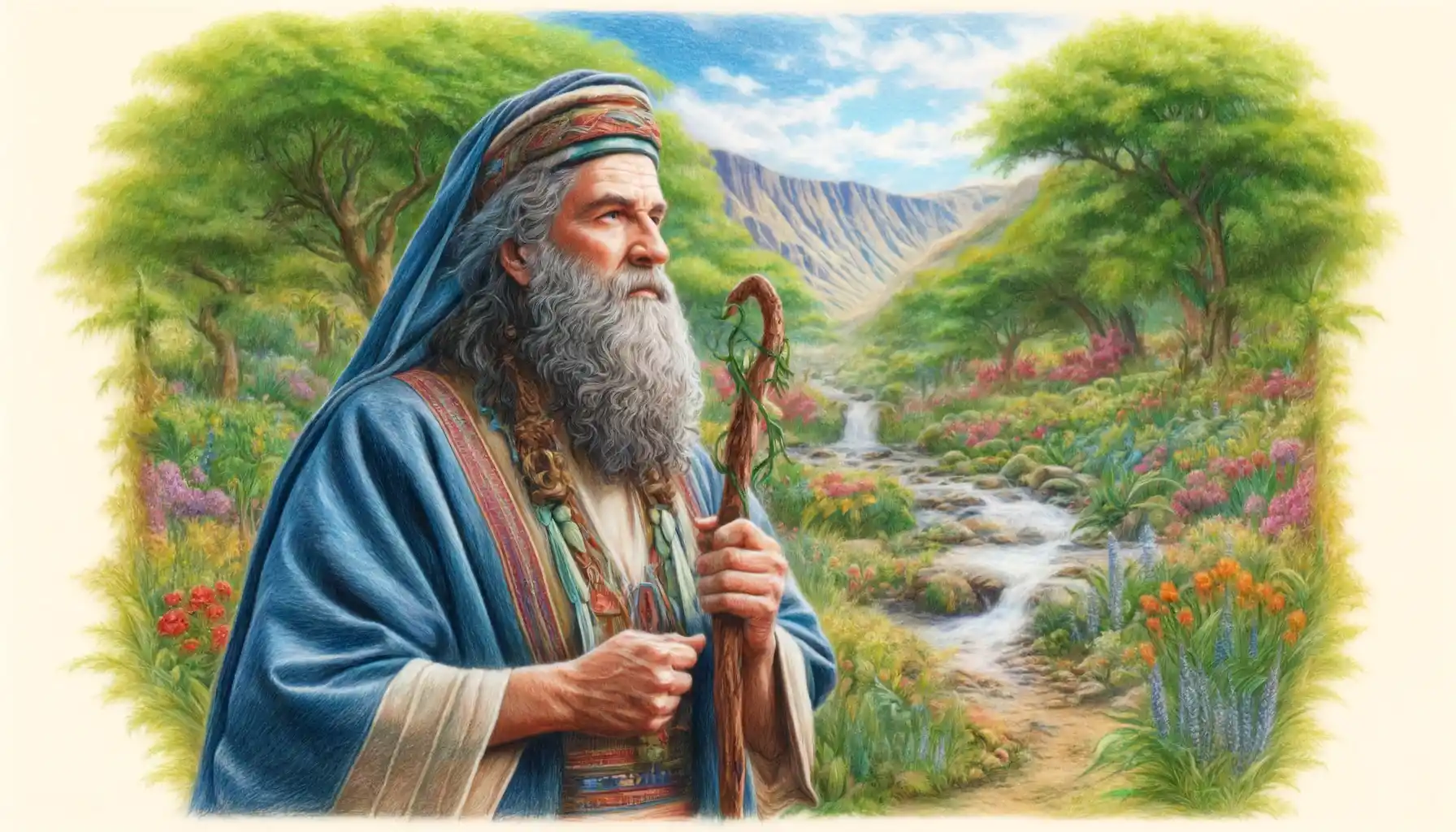In 1 Kings 19:15-17, God instructs Elijah to anoint Hazael as king over Aram and Jehu as king over Israel, marking a strategic shift in divine intervention from miraculous displays to political maneuvers, thereby setting the stage for significant political upheavals that shape the future course of both nations through divine judgment and the fulfillment of prophetic declarations.
The confrontation on Mount Carmel, as depicted in 1 Kings 18:20-40, showcases a dramatic contest orchestrated by the prophet Elijah to demonstrate Yahweh’s supremacy over the Canaanite gods Baal and Asherah, resulting in a divine fire consuming the drenched sacrifice and leading to the mass conversion of Israel back to the worship of Yahweh, reaffirming Elijah’s prophetic authority and God’s unmatched power.
The Parting of the Jordan River by Elijah, described in 2 Kings 2:8, marks a crucial moment in biblical narrative, where Elijah, using his cloak, miraculously parts the waters, allowing himself and his successor Elisha to cross on dry ground, symbolizing the transition of prophetic authority and demonstrating God’s enduring support for His prophets.
The account of Elijah praying for rain after a three-year drought, as depicted in 1 Kings 18:41-45, vividly demonstrates God’s sovereignty over natural phenomena and underscores the efficacy of faithful prayer, showing how God responded to Elijah’s earnest intercession by ending the severe drought with a significant rainfall, thereby affirming His supremacy over the idolatrous worship of Baal.
In 2 Kings 4:38-41, Elisha miraculously neutralizes a pot of poisonous stew by adding flour, transforming a deadly meal into a safe and nourishing one for the prophets during a famine, demonstrating God’s providence and the prophetic power to safeguard and sustain the community in times of crisis.
In 2 Kings 5, the story of Naaman’s healing from leprosy not only exemplifies the transformative power of simple faith and obedience to God’s commands, as demonstrated by his instructed immersion in the Jordan River, but also highlights themes of humility, the universality of God’s grace, and the severe consequences of greed and deception, illustrated by Gehazi’s downfall.
In 2 Kings 4:32-37, the resurrection of the Shunammite’s son by Elisha, through an intimate and miraculous act of physical contact, highlights the divine power over life and death and underscores the profound faith of the mother, illustrating the close, reciprocal relationship between God’s prophets and those they serve.
In 2 Kings 4:1-7, the narrative of the Widow’s Oil Multiplied showcases Elisha’s prophetic intervention as he instructs a desperate widow to multiply a small jar of oil by faith and obedience, thereby enabling her to pay off her debts and protect her family from slavery, illustrating God’s miraculous provision and care for the needy.
In 2 Kings 2:19-22, Elisha performs a significant miracle by purifying the toxic waters of Jericho using salt in a new bowl, symbolizing divine purification and renewal, which restores the land’s fertility and ensures the well-being of its inhabitants.
Elisha, the biblical prophet and successor to Elijah, is renowned for his miraculous ministry, including purifying waters, multiplying oil, resurrecting the dead, and healing Naaman’s leprosy, reflecting his profound impact on Israel through divine interventions and his significant role in the nation’s political and spiritual realms.

